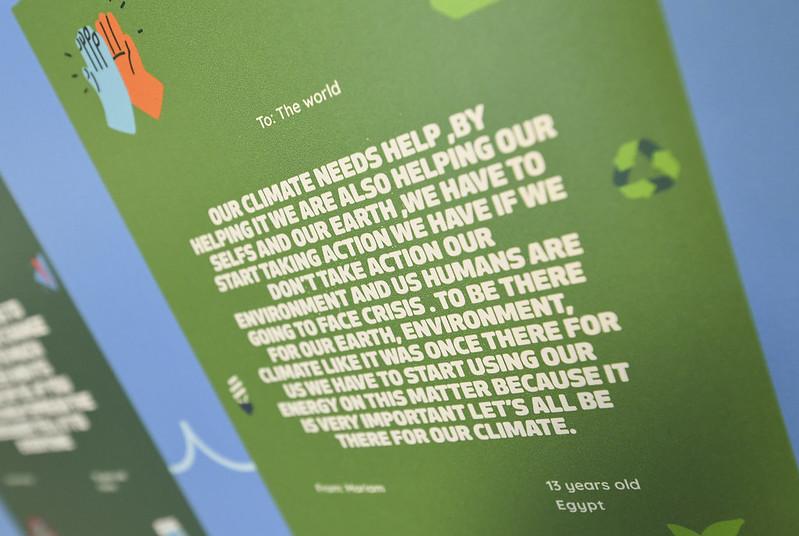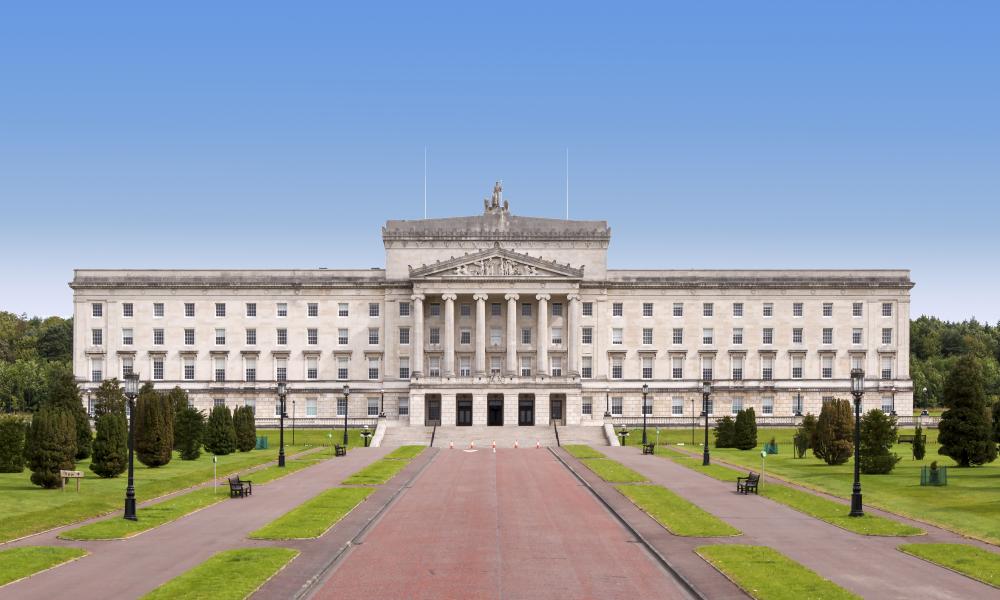
In this blog IPH Public Health Development Officer, Dr Jenny Mack, explores the relationship between climate change and public health and outlines the Institute’s recent consultation response on the Northern Ireland Climate Change (No.2) Bill.
The eyes of the world are currently focused on Glasgow for COP-26, the global climate change summit. The United Nations (UN) Conference marks the 26th meeting of countries that signed up to the UN Climate Change Treaty in 1994. Once again, the global summit has heard renewed calls for world leaders and governments alike to act faster to stem global warming and its impacts.
In 2015 the Paris Agreement, a legally binding international treaty on climate change, marked a significant milestone. For the first time, countries around the globe committed to work together towards a goal of limiting global warming to well below 2℃ – preferably to 1.5℃ – and to invest in adaptation strategies to address the existing impacts of climate change. Since then, although there has been some progress, evidence has shown that climate change targets need to be much more ambitious, as the window of opportunity to meet them is fading fast.
Earlier this year, the Sixth Assessment Report by the Intergovernmental Panel on Climate Change (IPCC) was issued as a ‘code red for humanity’. The United Nations body, which is tasked with assessing the science related to climate change, detailed in sobering terms the irreversible and destructive impact of human activity on the planet.
The substantial climate-related risks that are associated with global warming threaten health, livelihoods, food security, water supply and human security across the globe and could also lead to a catastrophic widening of existing inequalities. These risks increase as global temperatures increase. But how does global warming relate to public health? And why does this matter to you and me?
The environment in which we live has a direct and irrefutable impact on our health. The built environment can influence physical activity, active travel and the occurrence of non-communicable diseases. Access to green and blue spaces can support both physical and mental health, providing opportunities for play, recreation, activity, and social connection.
However, challenges such as global warming, climate change, and air pollution are interrelated and not only pose substantial risks to health but are also linked to a substantial volume of deaths every year.
- Annually, one quarter of deaths worldwide can be attributed to the environment – that’s approximately 13 million deaths each year (1).
- Air pollution alone causes seven million preventable deaths every year (1).
- Heat-related deaths are also increasing worldwide. In people older than 65 years, deaths reached a record high of approximately 345,000 in 2019 (2).
In terms of rising temperatures, it is considered that there is ‘no safe’ rise. Amongst the health community, climate change is widely considered to be a health emergency, with far-reaching negative impacts on health and health inequalities. Health professionals across the world are calling for tougher action to limit global temperature increases and protect health.
High quality studies have found that the health effects of climate change are broad, including dehydration, loss of kidney function, skin cancer, infectious diseases, worsening mental health, complications in pregnancy, cardiovascular disease, pulmonary disease, and death (3). These health harms disproportionately affect those who are more vulnerable, including children, older people, and those with underlying health problems, and developing countries that have contributed least to the problem and are least able to mitigate the harms.
The bottom line?
The connection between climate change and health is critical and brings substantial risks that require greater focus and public awareness. For that reason and others, we need to push our global warming ‘defence line’ as low as possible, as quickly as possible (4).
In a summary for policymakers, the IPCC advised that we need to achieve ‘at least net zero CO2 emissions, along with strong reductions in other greenhouse gas emissions’ (5). Across the world, countries are committing to reduce emissions through legislation and policy action, however, with varying degrees of ambition. In a special report for COP-26, the World Health Organization (WHO) made 10 recommendations that aim to inform governments on the urgent need to prioritise health and equity in the climate and sustainable development agenda (6).
In Northern Ireland, there are two Climate Change Bills going through the Northern Ireland Assembly, which have differing levels of ambition and ideas for governance structures. The NI Assembly issued a call for evidence regarding the Climate Change (No.2) Bill, as proposed by the Department of Agriculture, Environment and Rural Affairs. The ‘No.2’ Bill proposes that the target to reduce carbon emissions by 2050 is reduced to 82%, instead of the 100% target recommended on foot of high-quality scientific evidence.
Responding to the call for evidence, the Institute highlighted the need to address the climate crisis as a health emergency and to act faster on meeting current targets as outlined in the following recommendations:
- The faster ‘net zero’ is achieved, the better. The Institute endorses recommendations from the WHO and IPCC to take urgent action to reach ‘net zero’ as quickly as possible, before 2050, and limit global warming to 1.5°C.
- In Northern Ireland, the response to the challenge would be strengthened by robust governance arrangements with strategic leadership at Ministerial level, informed by the best available scientific evidence and co-ordinated by an independent oversight group. The development of a separate Department for Climate Change and Environment would be welcomed. As climate change is a transboundary public health challenge, an all-island approach with ambitious shared goals should be embraced.
- The climate emergency is a health emergency. To reduce the impact of climate change on health and health inequalities, the Institute would welcome an overarching strategy on climate change, health, and sustainable healthcare for Northern Ireland.
References
1. World Health Organization. WHO global strategy on health, environment and climate change: the transformation needed to improve lives and well-being sustainably through healthy environments. Geneva: World Health Organization; 2020.
2. Romanello M, McGushin A, Di Napoli C, Drummond P, Hughes N, Jamart L et al. The 2021 report of the Lancet Countdown on health and climate change: code red for a healthy future. Lancet. 2021.
3. Atwoli L, Baqui A H, Benfield T, Bosurgi R, Godlee F, Hancocks S et al. Call for emergency action to limit global temperature increases, restore biodiversity, and protect health BMJ 2021; 374: n1734
4. IPCC. FAQ Chapter 1 [Internet]. 2021 [cited Nov 2]. Available from: https://www.ipcc.ch/sr15/faq/faq-chapter-1/
5. IPCC. Summary for Policymakers. In: Masson Delmotte V, Zhai P, Pirani A, Connors SL, Péan C, Berger S, et al. editors. Climate Change 2021: The Physical Science Basis. Contribution of Working Group I to the Sixth Assessment Report of the Intergovernmental Panel on Climate Change. Cambridge University Press. In Press; 2021
6. World Health Organization. COP26 special report on climate change and health: the health argument for climate action. Geneva: World Health Organization; 2021.


